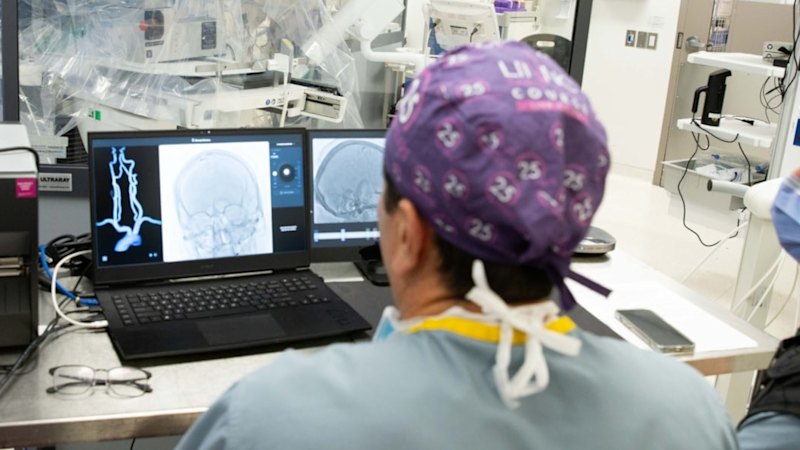
BREAKING: An Australian medtech start-up, Remedy Robotics, has just completed the world’s first fully remote robotic surgical procedures, a groundbreaking achievement poised to revolutionize healthcare for millions in rural areas. This monumental feat marks a significant advancement, allowing surgeons to perform delicate neurointerventions from thousands of kilometers away.
Founded by David Bell, a Perth-born cardiac surgeon, Remedy Robotics executed multiple procedures in Toronto by controlling robotic catheters remotely. This accomplishment, which has eluded the surgical robotics industry for nearly three decades, could dramatically improve access to life-saving treatments for patients in remote regions.
In partnership with the Australian Stroke Alliance, Remedy Robotics plans to conduct trials that will enable stroke patients in Darwin and Alice Springs to receive treatment from specialists located far away. “Australia has a unique geography,” Bell stated. “The idea is that patients in remote areas will have the same outcomes as those in major cities.”
The company’s innovative N1 System incorporates custom-built catheters mounted to a surgical robot, controlled by proprietary software. This allows physicians to perform cardiovascular interventions from any location with a stable internet connection. Advanced machine learning technology assists in navigating delicate procedures, particularly in challenging environments like the human brain.
For the 445,000 stroke survivors in Australia—expected to more than double by 2050—the implications are critical. The economic burden of strokes is estimated at over $32 billion annually. “Currently, stroke patients in Darwin must travel 3,000 kilometers to Adelaide for treatment,” said Professor Stephen Davis, co-chair of the Australian Stroke Alliance. “This new technology allows local doctors to initiate care, enabling remote specialists to take over.”
“Remote indigenous communities virtually can’t access this modern treatment because of the time barrier,” Davis added.
The success of these procedures will be validated through upcoming trials led by Professor Bernard Yan from the Royal Melbourne Hospital and Professor Hal Rice in Queensland. Initial operations will be supported by local specialists in case of any complications during remote intervention.
Remedy Robotics, which is now raising funds in the U.S. for FDA approval, has already secured backing from prominent investors including Blackbird Ventures and U.S. firm DCVC. Bell has indicated that they are “relatively close to closing” their funding round as they prepare for the next steps in implementing this transformative technology.
“Remedy Robotics is pushing the boundaries of what’s possible in modern medicine,” said Michael Tolo, a partner at Blackbird. “The ability to combine cutting-edge robotics with advanced machine learning and real-time imaging to enable remote cardiovascular intervention is truly revolutionary.”
Patient feedback has been overwhelmingly positive, reflecting a strong desire for increased access to advanced medical care. “The response so far has been very, very good,” Bell noted, highlighting the excitement surrounding the potential of this technology.
As Remedy Robotics prepares for trials and further advancements, the healthcare landscape for rural Australians stands on the brink of a transformative change, potentially saving countless lives and enhancing the quality of care across the nation. The world will be watching closely as these developments unfold.






